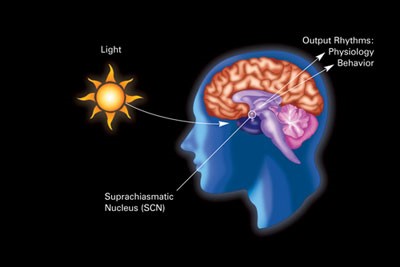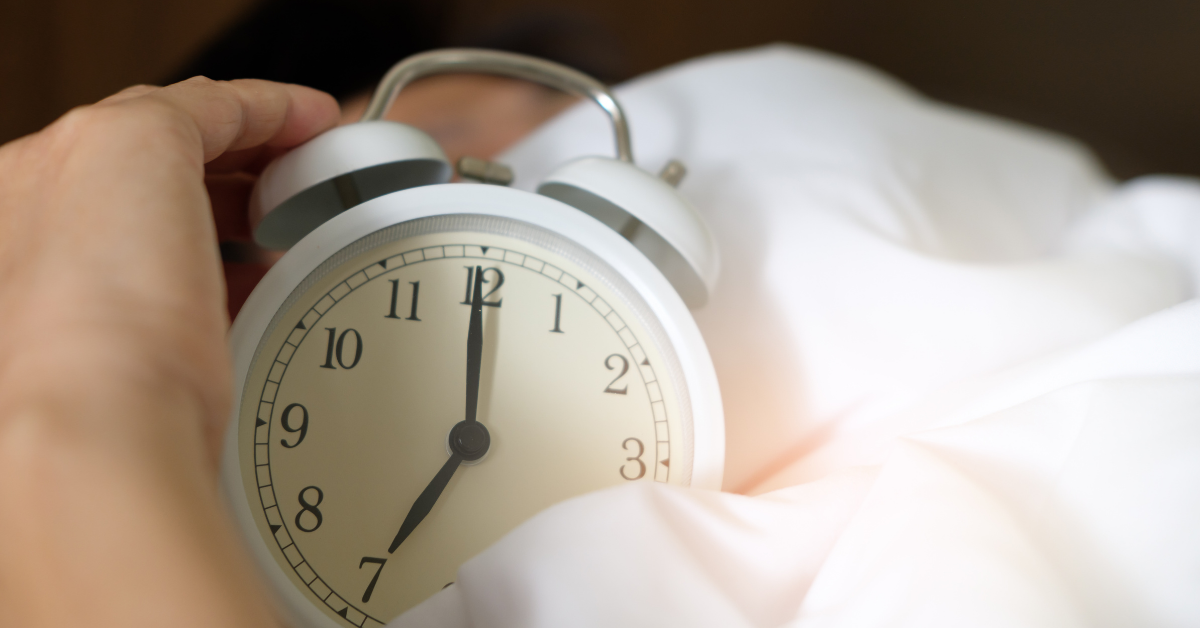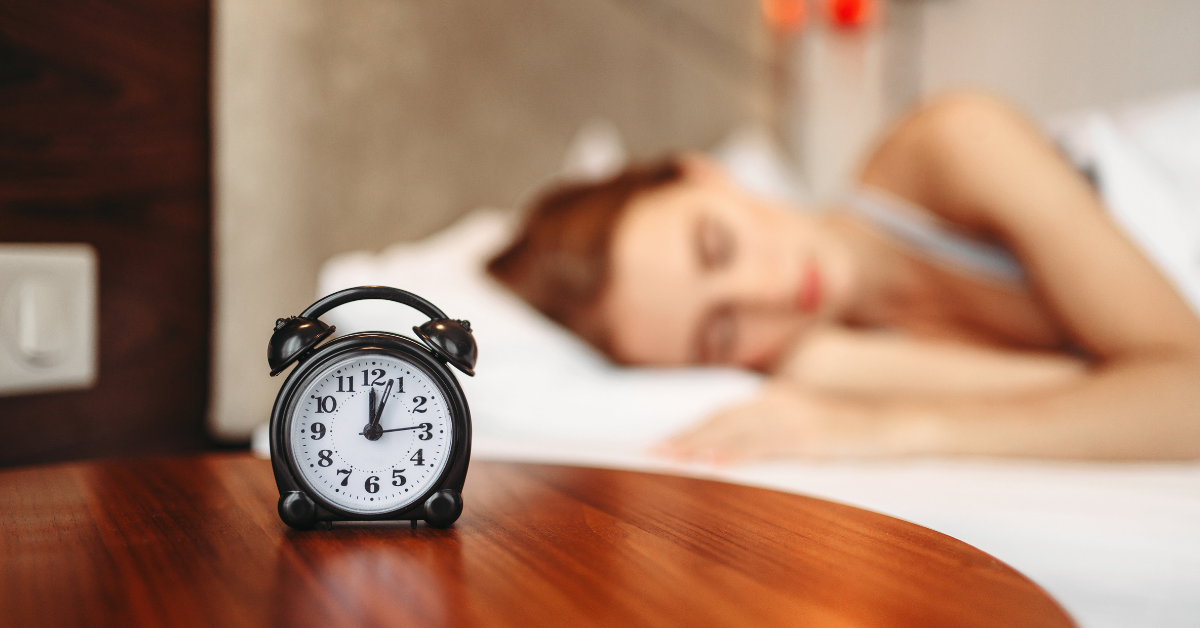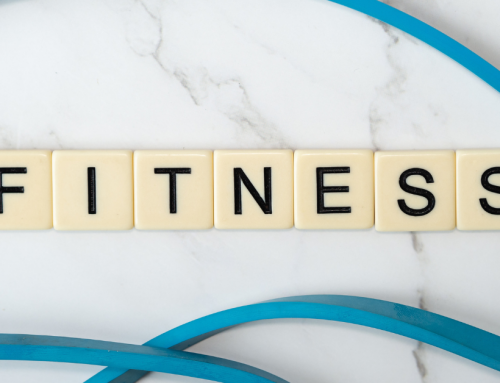What happens when you sleep?
———
The Importance of Sleep During Weight Loss
Rest is one of the most important keys in the weight loss process and overall good health. Your body will thank you if you start following a circadian rhythm.
What is Circadian Rhythm?

Circadian rhythms are physical, mental, and behavioral changes that follow a 24-hour cycle. These processes are natural and primarily linked to light and dark. Circadian rhythms affect most living things, including animals, plants, and microbes.
The study of circadian rhythms is called Chronobiology. One example of a light-related circadian rhythm is sleeping at night and being awake during the day. For instance, cavemen fell asleep to firelight and darkness and awoke when the sun lit up the sky.
Circadian rhythms are essential to weight loss support, muscle recovery, and overall mental health stability. Most individuals that struggle with weight loss or other imbalances have an abnormal circadian rhythm.
Have you ever heard your pediatrician prescribe that you get your kid on a schedule? The importance of that schedule is to provide the body with proper time frames to reach relaxation, fall asleep, achieve REM, give the brain time to de-stress, and the body time to regenerate.
Our Biological Clock

Our biological clocks provide a regular cycle of circadian rhythms. Think of a biological clock as molecules (proteins) that interact with cells throughout the body at different times. Nearly every tissue and organ contain biological clocks, fruit flies, mice, plants, fungi, and several other organisms.
The Master Clock

There is a master clock in the brain that coordinates all the biological clocks in a living thing.
According to the National Institute of General Medical Sciences:
In vertebrate animals, including humans, the master clock is a group of about 20,000 nerve cells (neurons) that form a structure called the suprachiasmatic nucleus, or SCN. The SCN is in a part of the brain called the hypothalamus and receives direct input from the eyes.
Circadian Rhythms affect health in major ways; hormone release, eating habits, and digestion, and body temperature. It is without a doubt that all of these factors impact weight loss success and the balance of hunger hormones.
The SCN (suprachiasmatic nucleus) is located in the hypothalamus and it controls the production of melatonin, the hormone that makes you sleepy. Most people start to notice the effect of their circadian rhythm on their sleep patterns. The SCN receives information about incoming light from the optic nerves, which relay information from the eyes to the brain. When there is less light—for example, at night—the SCN tells the brain to make more melatonin so you get drowsy.
The significance of melatonin goes deeper than just a sleep hormone.
Melatonin fuels the mitochondria in our body to fuel recovery, aid in digestion, and allow the brain to regenerate. This sleep hormone is vital to survival, overall health, happiness, and muscle recovery (for the heavy lifters.)
When the circadian rhythm is out of whack we may not pay close attention to it. Changes in the body and environment can cause circadian rhythms to be out of sync from natural light-dark cycles. Jet lag or shift work can cause changes in light-dark cycles, mutations or changes in certain genes, or light from electronic devices at night can confuse our biological clocks.
Changes like these can cause sleep disorders and may lead to other chronic health conditions, such as:
- Obesity
- Diabetes
- Depression
- Bipolar disorder
- Seasonal affective disorder
Individuals suffering from these types of health issues should take a deeper look at their circadian rhythm or at least start wearing a watch that tracks sleep patterns and sleep interruptions.
Circadian Rhythm and Weight Loss

There is extensive research published relating the time at which we eat in accordance to weight loss success. Some research specifically finds that eating meals late at night can desynchronize the internal body clock. Weight loss success is not solely based on how late you eat, it is also based on your activity levels, your micronutrients (fiber, magnesium, b vitamins, etc), and your habits.
Habits that will deter your weight loss success will be things like excessive blue light exposure when bedtime nears, excessive stress without management, and bad eating habits or eating rituals (late night ice cream binges). These things have got to stop in order to align your body with the results you desire, stacking one good habit at a time is the best way to build yourself up.
The research conducted on mice and cultured cells from the University of Manchester established that insulin is released from the pancreas following the consumption of food to help stabilize blood glucose levels.
Most keto conversations start and end with insulin production and methods to help control insulin levels. In fact, a lot of people choose keto because they have type two diabetes or another medical condition. If food is ingested outside of typical mealtimes, then the subsequent release of insulin also occurs outside of a typical schedule. Try to consume food around typical meal times in order to allow the release of insulin to occur on a typical schedule as well.
When you eat at abnormal times, the circadian rhythm can be disturbed. The disturbance of circadian rhythm not only affects weight loss and weight gain, but also cortisol levels.
Cortisol is a stress hormone, used to wake up the body, cortisol peaks at 8 am.
This stress hormone falls to its lowest concentration at 3 am. The rise in cortisol aligns with initial exposure to sunlight and by noon cortisol levels begin to fall inverse to serotonin and adrenaline, which elevated mood and energy. Typically individuals are more inclined and motivated both physically (hormonally) and mentally (peak cortisol) to exercise in the morning. This morning routine gives them a boost or serotonin to segway into the rest of their day.
According to News Medical Life Science:
The increase in energy levels, in particular, stimulates feelings of hunger and prompts the person to eat. Throughout the rest of the day, cortisol levels continue to decline, and serotonin is synthesized into melatonin, promoting feelings of sleepiness. Alongside this is a decrease in blood sugar levels, which drop to their lowest point at 3 am. This balance can be disturbed in those that snack late at night or eat meals outside typical times, affecting stress levels and digestion, the researchers argue.
The research found that insulin and the insulin-like growth factor – 1 (IGF-1) similarly synchronize with the body’s circadian rhythm. Upon the release of IGF-1, there is an increase in PERIOD clock proteins. During the experiment, the researchers altered the timings of insulin release and noted changes in circadian rhythms leading to altered behavior and gene expression in mice.
The Research Implies:
This research into Circadian Rhythm disrupted patterns and the impact they hold on weight loss and weight gain possess importance in today’s observed health trends.
The observations propose that insulin can act as a timing signal for other cells within the body. Circadian disruption is becoming more prevalent due to modern societal issues such as sleep deprivation and shiftwork.
Such disturbances can have a knock-on effect on the incidence and severity of diseases such as type 2 diabetes and cardiovascular disease.
Practical guidance based on the research includes the need to be mindful of when you eat to maintain healthy body clocks as we age. To help mitigate the adverse effects of shiftwork, paying attention to when you eat and light exposure may be beneficial.
How To Mend Your Circadian Rhythm
Weight loss trends come through your Instagram feed. Touting the next best way to drop those extra pounds that you have been trying to get rid of. Some of this clickbait may have pulled you in, and some of it sounds too good to be true (because it is), don’t fall for this nonsense. The truth behind weight loss and weight management is in the deeper work that you put into yourself.
Looking at your lifestyle and starting to be aware of your sleep patterns and eating patterns is the first step in the right direction.
- You may be chronically sleep-deprived, overstimulating your brain and body late at night to get the last episode of your Netflix show in, JUST ONE MORE!
- Maybe you’re a new parent that is being disturbed all night long with your newborn.
- You could also be the gamer who starts playing at 10 pm. You don’t shut off the game until 2 am and then wake up at 8 am for work.
Whoever you are, take a look at what you’re doing. Also how it might be affecting you in your daily life. If something is continually going awry during your workday, it may be YOU, not your colleagues. If you don’t have the energy to play with your kids after school or find yourself extra irritable, it’s probably YOU. And your bad sleeping habits, taking a bigger toll on your mood than you want to admit. It’s a hard pill to swallow. But once you know and understand how vital circadian rhythm is to your overall health and hormone balance, you will start to prioritize it.
Things to think about:
- Do you need an alarm clock?
- Does it take you a while to get out of bed?
- Do you need caffeine to get going?
- Do you feel like you need a nap after lunch?
- How much energy do you have for the gym around noonish or 5 o’clock?
- Do you fall asleep as soon as you hit the pillow?
- Can you sleep all night?
- Do you spend 7 hours in bed?
If you have answered YES to a lot or many of these questions, your circadian rhythm might be out of whack. If you have answered yes to any of these questions and you are struggling to accomplish your weight loss goals or other goals that you are trying to achieve, then it’s time to make some changes. Change is difficult and often uncomfortable at first. Take the habit of stacking slow and ease into this, becoming a better you doesn’t happen at the snap of a finger.
Ways To Make It Better

Here are some tips and tricks that may help you ease into having a better circadian rhythm that aligns with your master clock.
- Get sunlight or bright light for 30 minutes within the first 30 minutes to an hour after waking up. You might already be doing this if you get up to walk your dog every morning.
- Blackout your bedroom using black-out drapes so that you have complete darkness while you sleep. You may want to go as far as covering any type of lights in the room with electrical tape.
- Use blue and green blocking glasses for at least one hour before bed. Choose glasses that wrap around the eyes to block peripheral interferences.
- Turn your electronics off in or near your bedroom. Maybe a new rule you can make for yourself is that your bedroom is an electronic device-free zone.
- Go to bed at the same time every night and wake up at the same time every morning.
- Try breathing exercises, meditation, or visualization processes to help initiate sleep.
- Take magnesium malate 400-500 mg dose before bedtime.
- Get rid of any afternoon or evening caffeine or alcohol. When it comes to caffeine, do not drink any after 2 pm, ideally, it should be cut off before noon.
- Finish any last bites of food for the day at least 3 hours before sleep.
- Decrease the bedroom temperature during sleep. Start cooling the house down 1-2 hours before bed. There are also bed cooling systems like Chillpad, Cooler system, and Bedjet.
- Use a sauna or take a hot shower or bath 60-90 minutes before sleep and then allow the body to cool off by several degrees in the cooler air of the bathroom or home, almost to the point of getting goosebumps, before finally drying off.
- Set a timer somewhere in the house to go off 1 hour before bedtime and commit to stopping whatever you are doing to then begin a wind-down ritual.
These different tactics will help shift your circadian rhythm. Be ruthlessly consistent with your goal to fix, adjust and change your circadian rhythm. You will get this, and it will change your life.






